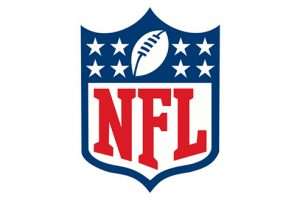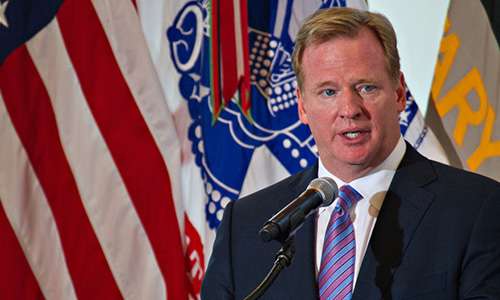NFL Feels Sports Betting Breathing Down Its Neck
The National Football League knows that sports betting will become legal in the United States soon (subject to state regulations, of course) and though the league still tries to pretend that it wants nothing to do with the pastime, it looks like it is prepared for the inevitable. This week at the NFL owners meetings in Orlando, Florida, sports betting was one of the main topics of discussion.
 As a quick background, sports betting is illegal in all but four states: Nevada, Montana, Oregon, and Delaware. Of those, Nevada is the only one with traditional, odds-based sports betting. The ban goes back to 1992 when Congress passed the Professional and Amateur Sports Protection Act (PASPA). States which had licensed casino gambling for the ten years leading up to PASPA were given the opportunity to be grandfathered in and offer sports betting, but the listed four states were the only ones to opt in.
As a quick background, sports betting is illegal in all but four states: Nevada, Montana, Oregon, and Delaware. Of those, Nevada is the only one with traditional, odds-based sports betting. The ban goes back to 1992 when Congress passed the Professional and Amateur Sports Protection Act (PASPA). States which had licensed casino gambling for the ten years leading up to PASPA were given the opportunity to be grandfathered in and offer sports betting, but the listed four states were the only ones to opt in.
In recent years, New Jersey, the gambling hub of the east coast, decided that it wanted to have sports betting, even going so far as to give its residents the chance to vote on it; the referendum passed easily. But every time New Jersey made a move to legalize sports betting within its borders, the major professional sports leagues – NFL, NBA, MLB, and NHL – as well as the NCAA would take legal action to block it. New Jersey got its case to overturn PASPA heard by the U.S. Supreme Court last year and it is expected that a ruling will come down sometime soon. Most expect that ruling to be in New Jersey’s favor, opening it up for every US state to legalize sports betting if they wish.
And though the NFL still tries to deny it approves of sports betting, the league at least isn’t denying the impending reality. At the owners meetings, NFL commissioner Roger Goodell address the discussions that have taken place on the topic (transcript courtesy Legal Sports Report):
I don’t have any insight into what the Supreme Court is going to do and we’re not privy to that. I think what we did this week was make sure people understood how the prospects and potential for gambling can change, in part because of the Supreme Court decision, how it’s evolved on its own, beyond that. And this isn’t new work, we’ve been focused on this for several years, of how it’s affected the way we operate.
The number one thing that was endorsed repeatedly by our membership was the integrity of our game though. We have to make sure that whatever environment we’re working in, and some of that may be related to what the Supreme Court decides, some of it might be future legislation, but we have to make sure we are operating in an environment where we can protect that integrity of the game. We recognize that we’re dealing in an environment here where we don’t know what the Supreme Court is going to do and we don’t know how other issues are going to evolve. But we wanted to make sure our clubs fully understood what we’re doing to make sure we’re prepared for that.
That “integrity of the game” has been the refrain from the leagues for eons and though there have certainly been instances throughout history where game outcomes have been impacted by a player or an official being on the take, these instances are rare. In the meantime, the leagues, and arguably the NFL most of all, benefit immensely from sports betting, as it increases interest and viewership among people who might not otherwise care about the games.
In lobbying a few state legislatures, the NBA and MLB have sought to have an “integrity fee” inserted into sports betting regulations in which the leagues would receive one percent of the total wagers placed on games. They claim it’s to cover costs to monitor game integrity or some similar shit, but come on. It’s a money grab that would devastate sports books. In some bills in progress, that integrity fee has been reduced to a quarter of a percent.
The NFL Network and NFL.com’s Ian Rapoport also tweeted this week that the league has been getting ready for legalized sports betting, writing, “Sources: The owners were presented with the findings of a previously secret study on gambling and the patterns of behavior associated with it. They received an update on technology and made sure the league is ready in case it is legalized.”
“While the Supreme Court is close to ruling on sports gambling, the year-long study on gambling was commissioned before the case was heard,” Rapoport added. “Gambling, if legal, represents not only a possible added revenue stream but also another international fan base.”
A couple things on that second tweet. First, I would hope that gambling doesn’t provide an added revenue stream, though it does seem like lawmakers and leagues are going down a path to an integrity fee, payments for the use of statistical data, or both. And second, the addition of an international fan base is irrelevant, as sports betting is already legal in many jurisdictions outside the United States, so people are already betting on NFL games. Legalization in the United States wouldn’t change any of that.



















COMMENTS